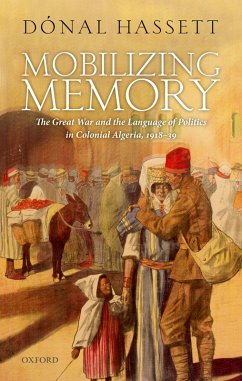
Humanitarian Imperialism (eBook, PDF)
The Politics of Anti-Slavery Activism, 1880-1940

PAYBACK Punkte
23 °P sammeln!
Between the late 1880s and the onset of the Second World War, anti-slavery activism experienced a revival in Europe. Anti-slavery organizations in Britain, Italy, France, and Switzerland forged an informal international network to fight the continued existence of slavery and slave trading in Africa. Humanitarian Imperialism explores the scope and outreach of these antislavery groups along with their organisational efforts and campaigning strategies. The account focuses on the interwar years, when slavery in Africa became a focal point of humanitarian and imperial interest, linking Catholic and...
Between the late 1880s and the onset of the Second World War, anti-slavery activism experienced a revival in Europe. Anti-slavery organizations in Britain, Italy, France, and Switzerland forged an informal international network to fight the continued existence of slavery and slave trading in Africa. Humanitarian Imperialism explores the scope and outreach of these antislavery groups along with their organisational efforts and campaigning strategies. The account focuses on the interwar years, when slavery in Africa became a focal point of humanitarian and imperial interest, linking Catholic and Protestant philanthropists, missionaries of different faiths, colonial officials, diplomats, and political leaders in Africa and Europe. At the centre of the narrative is the campaign against slavery in Ethiopia, an issue which served as a catalyst for the articulation of international humanitarian standards within the League of Nations in Geneva. By looking at the interplay between British and Italian advocates of abolition, Humanitarian Imperialism shows how in the 1930s anti-slavery campaigning evolved in close association with Fascist imperialism. Thus, during the Italo-Ethiopian war of 1935, the anti-slavery argument became a propaganda tool to placate public opinion in Britain and elsewhere. Because of its global echoes, however, the conflict also generated worldwide protest that undermined the beliefs and certainties of anti-slavery campaigners, resulting in a crisis of humanitarian imperialism. By following the story of anti-slavery activism into the post-1945 period, this volume illuminates the continuities and discontinuities in the international history of humanitarian organizations as well as the history of imperial humanitarianism.
Dieser Download kann aus rechtlichen Gründen nur mit Rechnungsadresse in A, B, BG, CY, CZ, D, DK, EW, E, FIN, F, GR, HR, H, IRL, I, LT, L, LR, M, NL, PL, P, R, S, SLO, SK ausgeliefert werden.













